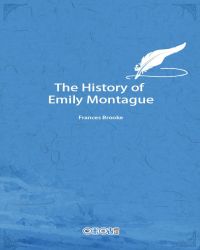LETTER CCXI.215.
LETTER CCXI.215.
To Captain Fitzgerald.
Bellfield, Nov.12.
Please to inform the little Bell, I won’t allow her to spoil my Emily.
I enter a caveat against male friendships, which are only fit for ladies of the salamandrine order.
I desire to engross all Emily’s kind propensities to myself; and should grudge the least share in her heart, or, if you please in her friendship, to an archangel.
However, not to be too severe, since prudery expects women to have no propensities at all, I allow single ladies, of all ranks, sizes, ages, and complexions, to spread the veil of friendship between their hearts and the world.
’Tis the finest day I ever saw, though the middle of November; a dry soft west wind, the air as mild as in April, and an almost Canadian sunshine.
I have been bathing in the clear stream, at the end of my garden; the same stream in which I laved my careless bosom at thirteen; an idea which gave me inconceivable delight; and the more, as my bosom is as gay and tranquil at this moment as in those dear hours of chearfulness and innocence.
Of all local prejudices, that is the strongest as well as most pleasing, which attaches us to the place of our birth.
Sweet home!only seat of true and genuine happiness.
I am extremely in the humor to write a poem to the houshold gods.
We neglect these amiable deities, but they are revenged; true pleasure is only to be found under their auspices.
I know not how it is, my dear Fitzgerald; but I don’t find my passion for the country abate.
I still find the scenes around me lovely; though, from the change of season, less smiling than when I first fixed at Bellfield; we have rural business enough to amuse, not embarrass us; we have a small but excellent library of books, given us by my mother; she and Emily are two of the most pleasing companions on earth; the neighbourhood is full of agreable people, and, what should always be attended to in fixing in the country, of fortunes not superior to our own.
The evenings grow long, but they are only the more jovial; I love the pleasures of the table, not for their own sakes, for no man is more indifferent on this subject; but because they promote social, convivial joy, and bring people together in good humor with themselves and each other.
My Emily’s suppers are enchanting; but our little income obliges us to have few: if I was rich, this would be my principal extravagance.
To fill up my measure of content, Emily is pleased with my retirement, and finds all her happiness in my affection.
We are so little alone, that I find our moments of unreserved conversation too short; whenever I leave her, I recollect a thousand things I had to say, a thousand new ideas to communicate, and am impatient for the hour of seeing again, without restraint, the most amiable and pleasing of woman-kind.
My happiness would be complete, if I did not sometimes see a cloud of anxiety on that dear countenance, which, however, is dissipated the moment my eyes meet hers.
I am going to Temple’s, and the chaise is at the door.
Adieu!my dear friend!
Your affectionate
Ed.Rivers. The History of Emily Montague

